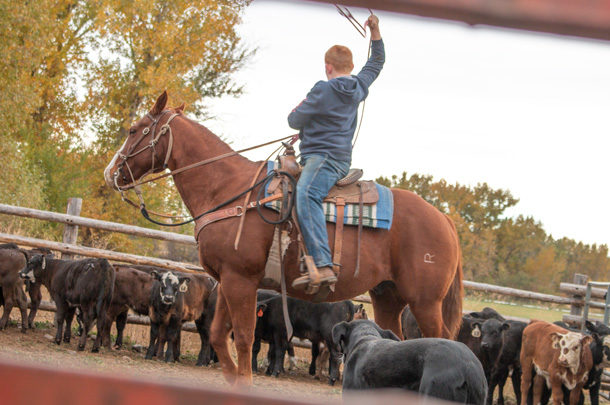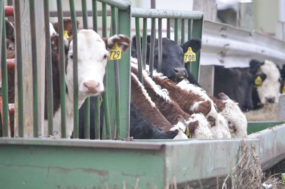The tension between benefits and risks poses problems for farm parents and safety professionals who wish to work together to mitigate children’s risks, as well as enhance the benefits of being raised on farms. A project at the National Children’s Center for Rural and Agricultural Health and Safety (NCCRAHS) titled “The Farm Kid Paradox” is exploring this problem in a new five-year cycle of the center.
Approximately every day in the U.S., there are 33 agricultural-related incidents involving children. According to the National Institute for Occupational Safety and Health (NIOSH), 60% of household youth were not working when they were injured in agriculture. Incidents with cattle are increasingly the leading cause of non-fatal injury among working and non-working youth in agriculture. The burden of youth agricultural injury is especially heavy on family farms and ranches where youth are often involved with livestock management, receive minimal training and may lack adult supervision. In addition, family farms are worksites and homes where youth are in close proximity to large livestock, especially beef and dairy cattle, as part of formal work and day-to-day domestic activities like chores and play.
Benefits, risks create paradox
However, the Wisconsin Infant Study Cohort (WISC) immunological research study conducted at the Marshfield Clinic Research Institute has shown that the effects of farm exposure benefits children’s immune systems and respiratory health by strengthening them. In addition, other culturally perceived benefits involve improved work ethic, healthier understandings of life and death, a greater sense of empathy and interdependency, enhanced problem-solving abilities, and the development of a wide range of practical skills. These perceived benefits of youth living and working with livestock can obscure the hazards that large livestock pose to youth and their health and safety. This concept that farms present both risks and benefits to children is the Farm Kid Paradox.
NCCRAHS teams in Wisconsin and Kansas State University are researching how parents on dairy and beef operations, as well as agricultural safety experts, understand the risks and benefits of child-livestock interaction. Existing safety resources are effective, but they do not bridge the gap between the risks and benefits that farms pose. Given that benefits of cattle exposure are acutely beneficial but also a leading cause of injury, researchers are looking at how safety materials for children and livestock can be adapted to be more realistic for parents and safety professionals.
The project will be conducting in-depth interviews with both farm parents and safety professionals from several different regions around the country. The goal of the project will be uniting farming and safety professional participants around the common goal of mitigating risks and enhancing the benefits of child livestock and farm exposure. Balancing risks with benefits in safety materials will allow safety professionals to bridge the gap, leading to more useful, relevant and desired safety resources, and a brighter future for farm families. This will improve guidance for parents, safety professionals, healthcare partners and others who will be better equipped to provide meaningful guidance to help parents avoid the risk of injury to their children.
Regional participation invited
You are eligible to participate in this research study if you have dairy or beef cattle on your operation, are within the regions around the research centers in Wisconsin (Wisconsin and Minnesota) and Kansas (Kansas and Nebraska), and are currently raising children between the ages of 10-18. If you choose to do so, your participation will include an interview describing activities you let your child perform with dairy and beef cattle and the benefits of these activities, as well as activities you do not let your child perform and why. You will also participate in another interview where your thoughts will be explored in more depth. Then we will ask you to participate in an interview to get feedback on other activities your child may or may not be allowed to do on the farm. We may also ask you for your opinions on farm safety materials geared toward parents. These interviews will last approximately one hour and occur over three years, scheduled at your convenience. ![]()
If you are interested in joining the study or have any questions, contact Kyle Koshalek, research coordinator, by email or call him at (715) 389-3786.
PHOTO: Research teams in Wisconsin and Kansas are researching how parents on dairy and beef operations, as well as agricultural safety experts, understand the risks and benefits of child-livestock interaction. Photo by Carrie Veselka.

-
Kyle Koshalek
- Research Coordinator
- National Children’s Center for Rural and Agricultural Health and Safety
- Email Kyle Koshalek









